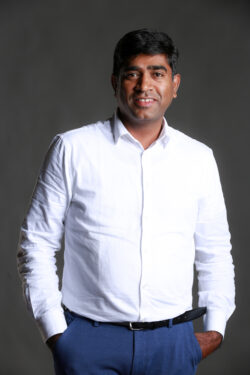The importance of cultivating a learning culture post-merger
- HRM Asia Newsroom

When companies come together through a merger or acquisition, navigating change is nothing short of a formidable journey. Change will undoubtedly bring up feelings of fear of the unknown in associates and it is natural for them to wonder whether their role will continue to be ‘safe’, who their new manager will be, and whether their development goals will have a place in the new organisation.
To the organisation, ensuring business continuity through systems and processes that feel seamless to both teams and customers alike, and uniting the culture of two organisations rich in history and identity will be paramount. Knowing that organisational changes can fail when associates do not understand the importance of riding the wave of change, we applied the Prosci Change Management methodology so that a strong foundation of learning is put in place and built upon, leading up to and long after the merger.
Creating a sense of stability through learning begins before
Part of that process of creating a sense of stability through learning begins before go-live day, by using the Prosci ADKAR model. This model, which is based on the understanding that organisational change can only happen when individuals change and align to the vision of the new organisation, helped us navigate the different phases of an ADKAR change curve associates go through – including Awareness, Desire, Knowledge, Ability, and Reinforcement. So, leading up to the integration, we ensured that associates were trained and ready to know how to change, and could implement the skills and behaviour in time for going ‘live’ as the new Cytiva.
Revitalising the L&D curriculum addressing the voice of associates
When the integration of Cytiva and Pall Life Sciences was completed in May 2023, our global learning and development (L&D) team took data from the annual global engagement survey to not only measure the pulse of our associate experience, but also to revitalise the L&D curriculum. We worked closely with the HR team to lead focus groups to better understand our associates’ goals and what they feel are gaps in their professional development. Through these processes, we found that associates needed more support to build trust, enhance communication, and strengthen business acumen in the new organisation – all at their own pace.
Here are four ways we approached these asks.
1. Simplify the learning curriculum to avoid choice paralysis: Have you ever scrolled down your streaming service homepage only to fall asleep before you can choose a movie? It may sound counterintuitive to not offer a ‘buffet-style’ spread of trainings. In our experience, we have found that less is more. Paring our plethora of trainings down to two paths for people leaders and individual contributors respectively helped associates find the most relevant learning paths for their goals without overwhelming them with choices.
2. Tap on people leaders to promote learning culture: The culture of learning can be formalised through systems and humanised through the support of people leaders. By ensuring that associates go through at least two performance and development conversations with their leaders annually, the opportunities to discuss goals and development areas will not go unchecked and help associates deliver results. To do that, L&D has guided people leaders and associates to enable effective goal aspiration dialogues that lead to meaningful development plans. With this guidance, people leaders can offer meaningful support to associates on which mode of learning, course or programme within the company, or externally, can help the associate reach their goals.
3. Look to advocates to inspire learning through teaching: Implementing regular peer-to-peer coaching as part of the development programme empower associates to discuss their learnings and become valued sources of guidance and support to one another. Furthermore, by putting together people from different parts of the business, associates get a chance to expand their network. Teaching can also come in more formal programmes. For example, across the Danaher group, Certified Practitioner (CP) and Certified Trainer (CT) programmes not only gives associates the opportunity to become trainers on a specific business system that improves performance and processes within the company, but also the ability to practice their skill across companies within the group.
4. Make it easier to learn on the fly: With increased digitalisation, we can develop online channels for learning such as webinars, guides, or interactive decision trees to help associates navigate their development journeys and choose learning paths that resonate with their goals while encouraging self-discovery amid ongoing dialogue with their leaders.
The way ahead
Taking learning and development as a focus area at the back of a very complex and high-stakes merger is on hindsight one of the best strategies in many ways. It has helped bring people together, achieve the clarity that is most needed when we bring two big systems’ ways of working, and most importantly it has helped shine a light on associates who are at the center of any such change. Now, we are poised to look into the future and live our mission of accelerating therapeutics every day, by the culture of learning and development.
About the authors:
 Anke Black is the Director Learning and Development (L&D) at Cytiva, finding her purpose in L&D, talent development, transformation and change management and together with her brilliant team, enabling Cytiva to build a learning culture to grow the industry’s best talent.
Anke Black is the Director Learning and Development (L&D) at Cytiva, finding her purpose in L&D, talent development, transformation and change management and together with her brilliant team, enabling Cytiva to build a learning culture to grow the industry’s best talent.
With more than 12 years of experience in the pharmaceutical industry, she has held roles with increasing responsibilities in leading customer service, to driving customer advocacy, successfully leading global projects, and now spearheading the learning and development transformation.
 Benjamin James, known as Benji, leads HR for Asia Pacific that covers ANZ, ASEAN, India, Japan and Korea with 1300+ associates across all functions of Cytiva. In his role as Senior Director, Human Resources, he is responsible for driving impact around transition, culture, associate experience, leadership development, organization structure and strategy.
Benjamin James, known as Benji, leads HR for Asia Pacific that covers ANZ, ASEAN, India, Japan and Korea with 1300+ associates across all functions of Cytiva. In his role as Senior Director, Human Resources, he is responsible for driving impact around transition, culture, associate experience, leadership development, organization structure and strategy.
Benji has over 20 years of HR experience spanning across IT, Engineering and Healthcare companies including GE Healthcare and Hewlett Packard.






